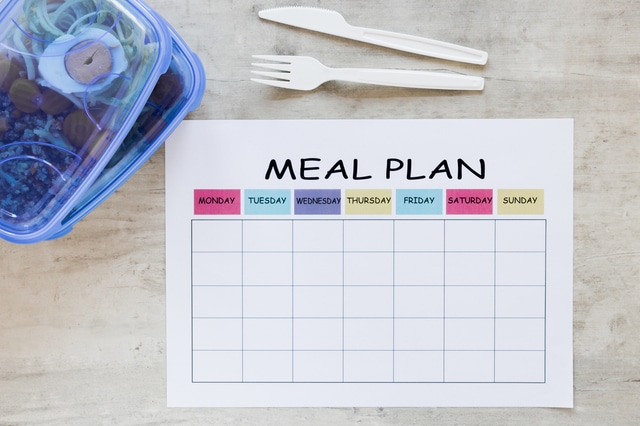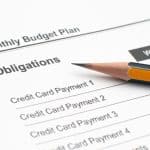How Meal Planning Can Save You Money and Time
Meal planning is a great way to save both time and money in your daily life. By taking the time to plan out your meals for the week, you can avoid last-minute trips to the grocery store and impulse buys that can quickly add up. Here are a few ways that meal planning can help you save money and time:
- Reduce food waste: When you plan out your meals in advance, you can buy only the ingredients you need for those meals. This can help you avoid buying excess food that ends up going to waste. By using up all the ingredients you buy, you can save money and reduce your environmental impact.
- Avoid eating out: When you have a plan for what you’re going to eat each day, you’re less likely to give in to the temptation of eating out or ordering takeout. By cooking at home, you can save a significant amount of money over time.
- Use sales and coupons strategically: When you plan your meals in advance, you can take advantage of sales and coupons at the grocery store. By planning your meals around what’s on sale, you can save money on your grocery bill.
- Save time during the week: By planning out your meals in advance, you can save time during the week by knowing exactly what you need to cook each day. This can help you avoid the stress of trying to figure out what to make for dinner at the last minute.
Overall, meal planning can be a valuable tool for saving both time and money in your daily life. By taking the time to plan out your meals for the week, you can make more strategic decisions about what you buy at the grocery store, avoid eating out, and save time during the week. Give meal planning a try and see how it can help you save money and time in the long run.
The Financial Benefits of Meal Planning for Frugal Families
Meal planning can provide significant financial benefits for frugal families. By taking the time to plan out meals for the week, families can save money by avoiding unnecessary trips to the grocery store and by making use of ingredients that are already on hand. This can help to reduce food waste and cut down on the amount of money spent on groceries each month.
Additionally, meal planning can help families to stick to a budget and avoid overspending on dining out or ordering takeout. By knowing exactly what meals will be prepared each day, families can make a shopping list and only purchase the ingredients needed for those meals, rather than buying items on a whim that may go unused.
Meal planning also allows families to take advantage of sales and discounts at the grocery store. By planning meals around what is on sale, families can save money on their grocery bill and stock up on items that can be used in future meals.
Overall, the financial benefits of meal planning for frugal families are clear. By taking the time to plan out meals, families can save money, reduce food waste, and stick to a budget, ultimately helping them to achieve their financial goals.
Budget-Friendly Meal Planning Tips for a More Frugal Lifestyle
Meal planning is an essential tool for anyone looking to save money and stick to a budget. By taking the time to plan out your meals in advance, you can avoid impulse buys and reduce food waste. Here are some budget-friendly meal planning tips to help you live a more frugal lifestyle:
- Start by taking inventory of what you already have in your pantry, fridge, and freezer. This will help you avoid buying duplicate items and ensure that you use up ingredients before they go bad.
- Plan your meals around what’s on sale at the grocery store. Look for deals on items like meat, produce, and pantry staples, and base your meal plan around those discounted items.
- Consider incorporating budget-friendly staples like beans, lentils, rice, and pasta into your meal plan. These ingredients are cheap, versatile, and can stretch a meal further.
- Cook in bulk and freeze leftovers for later. This will save you time and money in the long run, as you can simply reheat a homemade meal instead of ordering takeout or buying pre-packaged convenience foods.
- Shop in-season for produce, as it tends to be cheaper and more flavorful. You can also consider buying frozen fruits and vegetables, which are often more affordable than fresh and can be just as nutritious.
- Get creative with your meal planning by repurposing leftovers into new dishes. For example, leftover roasted vegetables can be turned into a frittata or added to a salad.
- Consider meal prepping for the week ahead to save time and money. This could involve cooking a big batch of soup, chili, or stew on Sunday and portioning it out for lunches throughout the week.
By incorporating these budget-friendly meal planning tips into your routine, you can save money, reduce food waste, and live a more frugal lifestyle. With a little bit of planning and creativity, you can enjoy delicious, homemade meals without breaking the bank.
The Health and Financial Benefits of Meal Prepping for Frugal Living
Meal prepping is a cost-effective and time-saving way to ensure that you have healthy and delicious meals ready to go throughout the week. By taking the time to plan and prepare your meals in advance, you can save money on groceries, reduce food waste, and improve your overall health.
One of the biggest benefits of meal prepping is the financial savings. By buying ingredients in bulk and preparing meals ahead of time, you can significantly reduce your grocery bill. Additionally, meal prepping allows you to take advantage of sales and discounts, as you can plan your meals around what is on sale at the store. This can result in substantial savings over time.
Meal prepping also helps to reduce food waste, as you can portion out your meals in advance and only buy what you need. This can help you save money on groceries and reduce the amount of food that ends up in the trash. By planning your meals in advance, you can also make sure that you are using up ingredients before they go bad, further reducing waste and saving money.
In addition to the financial benefits, meal prepping can also have significant health benefits. By preparing your meals ahead of time, you can ensure that you are eating balanced and nutritious meals throughout the week. This can help you maintain a healthy weight, improve your energy levels, and reduce your risk of chronic diseases.
Meal prepping also makes it easier to stick to a healthy eating plan, as you will have nutritious meals ready to go whenever you need them. This can help you avoid the temptation of fast food or unhealthy snacks, leading to better overall health and wellness.
In conclusion, meal prepping is a cost-effective and time-saving way to improve your health and save money. By planning and preparing your meals in advance, you can reduce your grocery bill, reduce food waste, and enjoy delicious and nutritious meals throughout the week. So, why not give meal prepping a try and start reaping the benefits today?
Meal Planning: The Key to Eating Well on a Tight Budget
Meal planning is a crucial aspect of maintaining a healthy diet while on a tight budget. By taking the time to plan out your meals for the week, you can ensure that you are making cost-effective choices that are also nutritious and delicious.
One of the key benefits of meal planning is that it allows you to make a shopping list based on the ingredients you will need for the week. This can help you avoid impulse purchases and unnecessary spending at the grocery store. By planning your meals in advance, you can also take advantage of sales and discounts on items that you need, saving you money in the long run.
Additionally, meal planning can help you avoid the temptation of eating out or ordering takeout, which can be more expensive and less healthy than cooking at home. By having a plan in place, you can easily prepare meals ahead of time and have them ready to go when you are busy or tired.
When meal planning on a budget, it is important to focus on incorporating affordable and versatile ingredients, such as beans, lentils, rice, and frozen vegetables. These items are often more budget-friendly than fresh produce and can be used in a variety of dishes.
In conclusion, meal planning is a valuable tool for eating well on a tight budget. By taking the time to plan out your meals, you can save money, make healthier choices, and avoid the temptation of eating out. With a little effort and creativity, you can enjoy delicious and nutritious meals while sticking to your budget.



